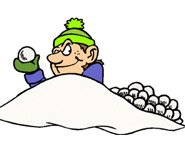Testosterone has a bad reputation. The public image of it is closely linked to the idea of dumb aggression, to the caveman. But this is a far from complete image. In recent years new research is starting to show that it would be more accurate to associate this much maligned hormone with Newton, Da Vinci, Einstein and Edison than the rough and brutal Neanderthal. Testosterone, it seems, could be the true driver of our civilisations.
Satoshi Kanazawa at the University of Canterbury, New Zealand, studied the biographies of 280 scientists and plotted their intellectual achievements against their ages. He discovered something extremely revealing: the curves of age-achievement in scientists was not only repeated in jazz musicians, painters and authors, but mirrored the curves of age-criminal activity in criminals. Furthermore, both criminal activity and intellectual achievement seemed to drop off when the scientist or crock got married and started a family.
Interesting, don't you think?
Criminal and high-level intellectual activity have the same underlying motor according to Kanazawa: testosterone.
This would also explain why most criminal and high level intellectual activities are carried out by the male of the species.
Testosterone is a hormone that males produce in far greater quantity than females. It begins production while the individual is still in the womb, and effects brain development. Testosterone levels tend to peak in the early twenties, and by middle age drop off dramatically.
High levels of testosterone have been reported to be correlated with dominant behaviour. This dominance does not necessarily express itself aggressively. It is more of a general competitive response. Also, interestingly, the relationship between testosterone levels and behaviour works both ways: taking part in competitive activity can raise levels of testosterone; furthermore, winning can increase it, losing can make it decrease.
Kanazawa's paper is not absolute proof that testosterone is the key driver of exceptional male behaviour, but it is an elegant and persuasive argument. Should it really be such a surprise that males have historically had a monopoly on both criminal activity and genius-level accomplishments? Are we really to believe that this is all a co-incidence, and the true reason for male behaviour is the 'Patriarchy', as feminists and political correctoids would have us believe?
A related area to testosterone's drive for dominance is the sex-drive.
Sex-drive is an elusive concept. It is hard to measure because it can only really be objectively measured by activity (i.e. amount of sexual activity one indulges in). However, this measurement is a vector. A vector is a combination of two factors (in this case: opportunity to have sex + drive to have sex; or lack of willpower to refrain from sex x drive to have sex) therefore we cannot resolve out these two factors and determine whether the person has a high sex drive or merely has lots of opportunities to have sex OR a low willpower to resist their drive.
Nevertheless, even if we can't always measure the sex-drive of a person objectively, that does not mean it doesn't exist. And sometimes things that one cannot measure objectively can simply be observed or perceived through common sense. Men certainly, at least historically, have had a greater expression of sex drive than women. Particularly young men, who are often in a frenzy to sleep with as many females as possible.
Sexual desire – like water – can be managed and channelled, but it is much harder to eliminate. Rather, you should seek to give it other channels of expression.
Maybe sex-drive is another way to measure achievement, or rather the sublimation of sex drive into purposeful goal-driven behaviour.
Leaders are readers, and one book stands out more than any other in history as a bible of the wealthy: 'Think and grow rich' by Napoleon Hill. Mr Hill spent years studying the rich and working out what made them that way. He then wrote many books on the subject, of which the most famous is 'Think and grow rich'. Chapter 10 of the book is entitled 'The mystery of sex transmutation'.
Here are a few interesting quotations from this chapter:
"Destroy the sex glands, whether in man or beast, and you have removed the major source of action. For proof of this, observe what happens to any animal after it has been castrated. A bull becomes as docile as a cow."
"A teacher who has trained and directed the efforts of more than 30,000 salespeople, made the astounding discovery that highly sexed men are the most efficient salesmen. The explanation is, that the factor of personality known as "personal magnetism" is nothing more nor less than sex energy."
And here is the most important quote:
"I have discovered, from the analysis of over 25,000 people, that men who succeed in an outstanding way, seldom do so before the age of forty, and more often they do not strike their real pace until they are well beyond the age of fifty.
The major reason why the majority of men who succeed do not begin to do so before the age of forty to fifty is their tendency to dissipate their energies through over-indulgence in physical expression of the emotion of sex.
The majority of men never learn that the urge of sex has other possibilities, which far transcend in importance that of mere physical expression. The majority of those who those who make this discovery, do so after having wasted many years at a period when the sex energy is at its height, prior to the age of forty-five to fifty. This is usually followed by noteworthy achievement.
Biographies of American industrialists and financiers are filled with evidence that the period from forty to sixty is the most productive age of man."
Well, there you have it. When young men chase women for sex, they are throwing their wild oats into the wind. They are dissipating their energies, short-circuiting their currents to get a quick spark of pleasure which then leaves them in darkness. In order to get a continuous light-source there needs to be an element of resistance (called the filament in a light-bulb). Resistance builds strength.
We undoubtedly live in a sexually charged time. Sex is used constantly by advertisers and marketers to entice men to buy things. Also, women and girls today routinely dress in extremely provocative clothes, even in the workplace. All this adds up to more invitations to think about sex today than men suffered in the past. If it were not for my hatred of the language of victimology I would call this is a form of sexual harassment of men.
This plays brilliantly into the hands of women, who obviously would like nothing more than to 'bump up' the market value of their sexual favours. Indeed, this relationship between the need to increase their sexual market value and the increasing 'sexiness' of women's appearance can be observed in society. As women have become more harsh and less feminine in some of their behaviours (thus depleting the attractiveness of their personalities to men) they have had to compensate by turning up the volume of their physical appeal: shorter skirts, lower-cut tops, exposing their stomachs etc. This ends up harming them though, as they are only wanted for sex, and not their personality.
A more temperate attitude towards sex would be healthier for both men and women. It would allow men to concentrate on more important things, and it might allow women to develop their personalities and not just their looks.
Science references:
'Why productivity fades with age: The crime–genius connection', Kanazawa, S., Journal of Research in Personality 37 (2003) 257–272
'Testosterone and dominance in men', Mazur,A. and Booth, A., Behavioral and Brain Sciences (1998) 21, 353–397
---------------------------------------------------------------------------------
Related:
The Testosterone Guide -- Roissy
Search This Blog
The Jiggly Room
Polk High
The Encyclopedia Marxofeminist

Feminist "Equality" Includes The Loss of Free Speech
Sheeple Fighting Back!
- Black Sheep - You Tube (2min)
- Symantec (SYMC - NASDAQ) Downgraded to "Sell"
- Problems With Norton Internet Security?
- Cypress CEO Responds to Nun's Urging a "Politically Correct" Board Make-Up
- Do You Believe Women Have the Right to Free Speech?
- Canadian Feminists Getting Worried?
- Seven Ways To Get Traffic Without Google
Not All Women Are Like That! (NAWALT)
Myths, Legends & Religions

You are not god. Learn to observe without judging.

- Cypress CEO Responds to Nun's Urging a 'Politically Correct' Board Make-up
- The Baby Bomb: How the Boomers were Used to Demolish a Culture
- Statement of Bill Wood to the Committee on Ways and Means
- Why Did Feminists Attack the Family? -- by Heretical Sex
- Political Correctness - The Revenge of Marxism -- by Baron Bodissey
- Are Americans Practicing Communism? (The Ten Planks of the Communist Manifesto)
"We can't expect the American People to jump from Capitalism to Communism, but we can assist their elected leaders in giving them small doses of Socialism, until they awaken one day to find that they have Communism." -- Nikita Krushchev

THE ANIMAL FARM REALITY OF "FEMINIST EQUALITY:"
"Differences [between men and women], including the products of social inequality, MAKE UNEQUAL TREATMENT NOT UNEQUAL AT ALL." -- Catharine MacKinnon, "Reflections on Sex Equality Under Law," Yale Law Journal, 1991
Blog Archive
-
▼
2001
(32)
-
▼
January
(28)
- Men Going Their Own Way (MGTOW)
- Howard Roark: In Praise of the Self -- by Ayn Rand...
- Sexual Freedom vs. Political Freedom
- Testosterone: Hormone Of The Gods? -- by Darren Bl...
- The "Mature Man's" Views on "Game"
- Pair Bonding
- Omega Traits Are Not Alpha Traits, But Are The Pro...
- Abolish Gender Roles For Men?
- Refuting the Declaration of Sentiments: Point One
- What Is An Alpha Male?
- Why I Like "The Book of Bonecrcker"
- Fitness Testing (Shit Tests)
- Coincidence Theory
- Old School MGTOW
- Rats! (Or, He Chases Her Until She Catches Him)
- The Russian Family Code of 1926
- The Fed Prints On
- 180 Seconds
- Roissy's Sixteen Commandments of Poon
- Roissy's Maxims
- Gender Differences in Bullying and other Aggressiv...
- Briffault's Law
- Dissimulation
- Back in the U.S.S.R. (Oh the Irony, Sir McCartney,...
- One of These Statements Literally Represents Total...
- Republic versus Democracy?
- Declaration of Sentiments - Seneca Falls, NY (1848)
- Odds and Ends
-
▼
January
(28)

"Only an armed people can be the real bulwark of popular liberty." -- V.I. Lenin
Repeal the Canadian Gun Registry

"A system of licensing and registration is the perfect device to deny gun ownership to the bourgeoisie." -- V.I. Lenin
"We shall destroy you from within!" -- Nikita Krushchev, during the Kitchen Debate, 1959
"Self Made Man" - Sculpture by Bobbie Carlyle
Websites
The Demographic Trap

"Destroy the family, you destroy the country." -- V.I. Lenin
"America is like a healthy body and its resistance is threefold: its patriotism, its morality, and its spiritual life. If we can undermine these three areas, America will collapse from within." -- Josef Stalin
Back to the Bible
A Non-Bible Thumper Point of View
"The aim of socialism is not only to abolish the present division of mankind into smaller states and all-national isolation, not only to bring the nations closer to each other, but also to merge them." -- V.I. Lenin
No Thanks - We'd Rather Be Canadian!
Man-Made Global Warming is a Hoax being used to bring about Global Communism (Globalization)

"Every collectivist revolution rides in on a Trojan horse of 'emergency'. It was the tactic of Lenin, Hitler, and Mussolini. In the collectivist sweep over a dozen minor countries of Europe, it was the cry of men striving to get on horseback. And 'emergency' became the justification of the subsequent steps. This technique of creating emergency is the greatest achievement that demagoguery attains." -- Herbert Hoover
Beware the Cultural Marxism of Environmentalists
"The threat of environmental crisis will be the 'international disaster key' that will unlock the New World Order." -- Mikhail Gorbachev, quoted in "A Special Report: The Wildlands Project Unleashes Its War On Mankind", by Marilyn Brannan, Associate Editor, Monetary & Economic Review, 1996, p. 5

ABOLISH THE UNITED NATIONS
The Marxism of Multi-Culturalism

"Tolerance is how far a mechanical part can deviate from the norm before it screws up the entire machine." -- Any Mechanic
The Grinch That Steals Children's Souls

"Give us the child for 8 years and it will be Bolshevik forever." -- V.I. Lenin
"We must declare openly what is concealed, namely, the political function of the school...It is to construct communist society." -- V.I. Lenin
Extra, Extra!



"The oppressed are allowed once every few years to decide which particular representatives of the oppressing class are to represent them." -- Karl Marx
The Liberal Party of Canada = Cultural Marxist Agenda
- The Real Pierre Trudeau: Father of Canada's Permissive Society -- by Steve Jalsevac
- Pierre Elliot Trudeau - Cultural Marxist Wrapped In a Canadian Flag
- The Multi-Tasking Pink Proletariat
- The Right Dishonourable Paul Martin Wants Canadians to "Give Up A Little Of Our Sovereignty To Make The World Work." -- YouTube 2:38 (Maybe We Should Lock Him Up To Make Canada Work!)
Congratulations, Karl Marx!

Marxism Links (For Researching)

- A Brief Overview of Marxism: "Communist (Community) Oriented Policing" - by Phil Worts
- Antonio Gramsci - Collected Works, including the Prison Notebooks
- Antonio Gramsci's Life & His Marxist Theories Explained
- Communist Manifesto - by Karl Marx & Frederick Engels
- Herbert Marcuse Official Homepage
- Herbert Marcuse, Haters of
- Marxists Internet Archive
- The Conflict Tradition
- Women and Marxism
Rule by Science

Philosophy Corner

“Dialectical thought is related to vulgar thinking in the same way that a motion picture is related to a still photograph. The motion picture does not outlaw the still photograph but combines a series of them according to the laws of motion.” -- Leon Trotsky
Dialectical Thought is a Cornerstone of Marxism, and Feminism (Because They Are One In the Same)
The Marxist Dialectic's Zig-Zag

Wishing to advance in a room full of people, I do not walk through the aisle and straight toward my goal. Nor do I move slowly through the crowd shaking hands with friends and acquaintences, discussing points of interest, gradually nearing the objective. The dialectical pathway is different. It consists of a resolute forward advance followed by an abrubt turn and retreat. Having retreated a distance there is another turn and advance. Through a series of forwardbackward steps the goal is approached. To advance thus is to advance dialectically. The Communist goal is fixed and changeless, but their direction of advance reverses itself from time to time. They approach their goal by going directly away from it a considerable portion of the time. Lenin wrote the textbook, One Step Forward, Two Steps Back. Chinese Communist schoolchildren are taught to do the dialectical march taking three steps forward and two steps back. If we judge where the Communists are going by the direction in which they are moving we will obviously be deceived -- Dr. Fred Schwarz, President of Christian Anti-Communism Crusade
Critical Theory

All's Fair In Love and War


The Matriarchy Lives! (Click Picture)

"I am most anxious to enlist everyone who can speak or write to join in checking this mad, wicked folly of 'Women's Rights', with all its attendant horrors, on which her poor feeble sex is bent, forgetting every sense of womanly feelings and propriety. Feminists ought to get a good whipping. Were woman to 'unsex' themselves by claiming equality with men, they would become the most hateful, heathen and disgusting of beings, and would surely perish without male protection." -- Queen Victoria, 1870


Please Give Manginas the Respect They Deserve: NONE!

























